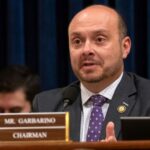
Authored by Zachary Stieber via The Epoch Times,
A federal appeals court late on June 20 denied Steve Bannon’s emergency request to delay his prison sentence.
In a split ruling, a panel of the U.S. Court of Appeals for the District of Columbia Circuit said that Mr. Bannon’s request “does not warrant a departure from the general rule that a defendant ’shall ... be detained' following conviction and imposition of a sentence of imprisonment.”
Mr. Bannon, 70, who was an adviser to President Donald Trump, was convicted of contempt of Congress and sentenced to four months in prison.
He had been allowed to remain free pending an appeal, but after the appeals court in May rejected his appeal, the judge recently ordered him to report to prison on July 1.
Defendants can remain free if they raise a “substantial question of law or fact likely to result in reversal [or] an order for a new trial” and Mr. Bannon had done that, U.S. District Judge Carl Nichols said previously. However, in light of the appeals court ruling, that was no longer the case, Judge Nichols said on June 6.
He gave Mr. Bannon leave to seek a stay of his order, which, if granted, would delay the prison sentence.
Mr. Bannon has said he was relying on counsel when he declined to cooperate with congressional subpoenas. In an emergency motion to the appeals court, his lawyers said that there is a substantial question surrounding whether people who rely on the advice of counsel can be prosecuted under a law that bars “willfully” not complying with subpoenas from the U.S. House of Representatives or Senate.
In Licavoli v. United States, a 1961 ruling, the appeals court concluded that deliberately refusing to abide by congressional subpoenas was a violation of the law. That a defendant did so “upon the advice of a lawyer is no defense,” the court said at the time.
While both Judge Nichols and an appeals court panel cited Licavoli in denying Mr. Bannon’s arguments, Mr. Bannon’s lawyers said that the Supreme Court would likely reject the precedent if presented with the case.
“As the panel acknowledged, the Supreme Court has since emphasized the ‘general’ rule‘ that ’willfully' means a defendant must act with ‘knowledge that his conduct was unlawful,’ an interpretation that strongly favors Mr. Bannon,” they wrote.
“But the panel felt obligated to disregard the Supreme Court’s “‘general’ rule” because of the sixty-year-old decision in Licavoli. The Supreme Court itself is not so bound, however, and there is at least a fair chance that court would stick to its general rule—and adopt Mr. Bannon’s interpretation of § 192—which necessarily makes the issue a ’substantial' one.”
Prosecutors, on the other hand, urged the court to deny Mr. Bannon’s motion, asserting he has failed to show that he’s raised a substantial question of law or fact as needed.
U.S. Circuit Judges Cornelia Pillard, appointed under President Barack Obama, and Bradley Garcia, an appointee of President Joe Biden, sided with the government.
Mr. Bannon “argues that the Supreme Court, or this court sitting en banc, is likely to overrule our squarely applicable decision in Licavoli v. United States,” they said. But the judges said that the nation’s top court “has treated the willfulness requirement of the contempt of Congress statute in ways that ‘firmly support ... Licavoli’s holding.’”
They added later: “Bannon’s proposal—that to prove willful default the government must establish that the witness knew that his conduct was unlawful—cannot be reconciled with the Supreme Court’s approach to the statute. If an assertion of good-faith reliance on advice of counsel excused a witness’s wholesale noncompliance, even as it is plainly unavailable to a more cooperative witness who appears but refuses to answer certain questions, Congress’s power of inquiry would be ‘nulli[fied].’”
In a dissent, U.S. Circuit Judge Justin Walker, an appointee of President Trump’s, wrote that the Supreme Court could very well end up ruling in favor of Mr. Bannon.
“For a court unbound by Licavoli, like the Supreme Court, the proper interpretation of ‘willfully’ in Section 192” is “a ‘close’ question or one that very well could be decided the other way,” he said. Due to this, “Bannon should not go to prison before the Supreme Court considers his forthcoming petition for certiorari,” or appeal, the judge added.
Authored by Zachary Stieber via The Epoch Times,
A federal appeals court late on June 20 denied Steve Bannon’s emergency request to delay his prison sentence.
In a split ruling, a panel of the U.S. Court of Appeals for the District of Columbia Circuit said that Mr. Bannon’s request “does not warrant a departure from the general rule that a defendant ’shall … be detained’ following conviction and imposition of a sentence of imprisonment.”
Mr. Bannon, 70, who was an adviser to President Donald Trump, was convicted of contempt of Congress and sentenced to four months in prison.
He had been allowed to remain free pending an appeal, but after the appeals court in May rejected his appeal, the judge recently ordered him to report to prison on July 1.
Defendants can remain free if they raise a “substantial question of law or fact likely to result in reversal [or] an order for a new trial” and Mr. Bannon had done that, U.S. District Judge Carl Nichols said previously. However, in light of the appeals court ruling, that was no longer the case, Judge Nichols said on June 6.
He gave Mr. Bannon leave to seek a stay of his order, which, if granted, would delay the prison sentence.
Mr. Bannon has said he was relying on counsel when he declined to cooperate with congressional subpoenas. In an emergency motion to the appeals court, his lawyers said that there is a substantial question surrounding whether people who rely on the advice of counsel can be prosecuted under a law that bars “willfully” not complying with subpoenas from the U.S. House of Representatives or Senate.
In Licavoli v. United States, a 1961 ruling, the appeals court concluded that deliberately refusing to abide by congressional subpoenas was a violation of the law. That a defendant did so “upon the advice of a lawyer is no defense,” the court said at the time.
While both Judge Nichols and an appeals court panel cited Licavoli in denying Mr. Bannon’s arguments, Mr. Bannon’s lawyers said that the Supreme Court would likely reject the precedent if presented with the case.
“As the panel acknowledged, the Supreme Court has since emphasized the ‘general’ rule‘ that ’willfully’ means a defendant must act with ‘knowledge that his conduct was unlawful,’ an interpretation that strongly favors Mr. Bannon,” they wrote.
“But the panel felt obligated to disregard the Supreme Court’s “‘general’ rule” because of the sixty-year-old decision in Licavoli. The Supreme Court itself is not so bound, however, and there is at least a fair chance that court would stick to its general rule—and adopt Mr. Bannon’s interpretation of § 192—which necessarily makes the issue a ’substantial’ one.”
Prosecutors, on the other hand, urged the court to deny Mr. Bannon’s motion, asserting he has failed to show that he’s raised a substantial question of law or fact as needed.
U.S. Circuit Judges Cornelia Pillard, appointed under President Barack Obama, and Bradley Garcia, an appointee of President Joe Biden, sided with the government.
Mr. Bannon “argues that the Supreme Court, or this court sitting en banc, is likely to overrule our squarely applicable decision in Licavoli v. United States,” they said. But the judges said that the nation’s top court “has treated the willfulness requirement of the contempt of Congress statute in ways that ‘firmly support … Licavoli’s holding.’”
They added later: “Bannon’s proposal—that to prove willful default the government must establish that the witness knew that his conduct was unlawful—cannot be reconciled with the Supreme Court’s approach to the statute. If an assertion of good-faith reliance on advice of counsel excused a witness’s wholesale noncompliance, even as it is plainly unavailable to a more cooperative witness who appears but refuses to answer certain questions, Congress’s power of inquiry would be ‘nulli[fied].’”
In a dissent, U.S. Circuit Judge Justin Walker, an appointee of President Trump’s, wrote that the Supreme Court could very well end up ruling in favor of Mr. Bannon.
“For a court unbound by Licavoli, like the Supreme Court, the proper interpretation of ‘willfully’ in Section 192” is “a ‘close’ question or one that very well could be decided the other way,” he said. Due to this, “Bannon should not go to prison before the Supreme Court considers his forthcoming petition for certiorari,” or appeal, the judge added.
Loading…





